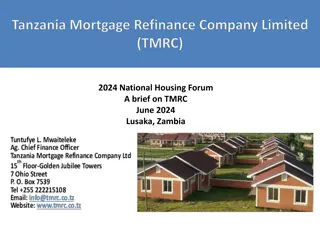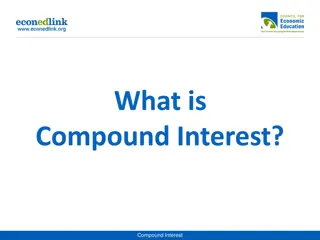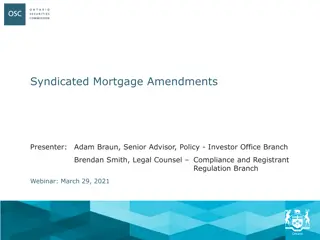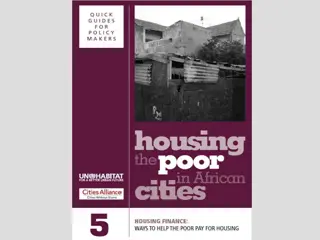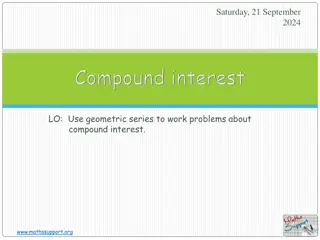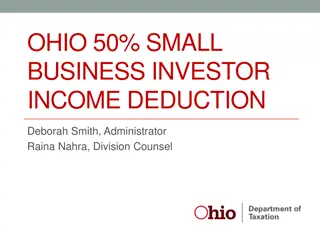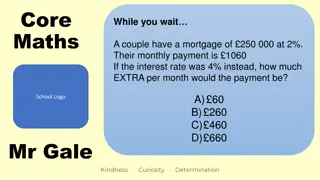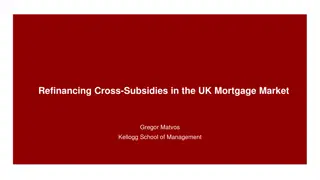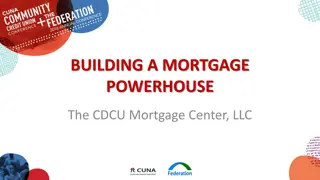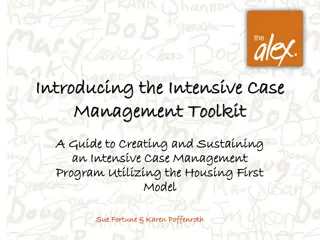Understanding the Impact of Mortgage Interest Deduction on the Housing Market
The Mortgage Interest Deduction (MID) is a significant tax expenditure in the U.S., often associated with promoting homeownership. However, research suggests that its impact on increasing affordability and homeownership is limited, particularly for high-income households. The regressive nature of the deduction can lead to rising house prices, potentially crowding out lower-income households from the market. Various studies have explored the effects of MID on the housing market, highlighting its influence on home prices, borrowing behavior, and homeownership rates.
Download Presentation

Please find below an Image/Link to download the presentation.
The content on the website is provided AS IS for your information and personal use only. It may not be sold, licensed, or shared on other websites without obtaining consent from the author. Download presentation by click this link. If you encounter any issues during the download, it is possible that the publisher has removed the file from their server.
E N D
Presentation Transcript
The Mortgage Interest Deduction and the Housing Market Kamila Sommer Board of Governors of the Federal Reserve System Prepared for the NTA Spring Symposium May 17, 2018 The views expressed herein are those of the individual authors and do not necessarily reflect the views of the Federal Reserve Board of Governors, its members, or its staff.
Mortgage Interest Deduction Historically, one of the largest tax expenditures in the U.S. (JCT 2012) Popularly linked to promoting homeownership. Idea: The subsidy reduces the after-tax cost of a square foot of housing for itemizers, thereby increasing affordability. The deduction is regressive: high-income households benefit the most. Considerably more likely to itemize. Face larger marginal tax rates and tend to have larger mortgages. Research suggests limited effect on homeownership. Marginal homebuyers in most markets typically not high-income. Especially in less elastic housing markets the deduction likely serves to raise the house price level.
Mortgage Interest Deduction: The Theory The deduction s effects on the housing market have been modelled extensively. Compare economies with and without the deduction, all else equal. Focus on the full repeal of the deduction. In models where house prices are not allowed to adjust, full repeal can deliver declines in homeownership.
Mortgage Interest Deduction: The Theory (contd) New research recognizes the importance of price effects (Sommer and Sullivan, 2018). The regressive nature of the deduction increases demand for housing by high-income households; causes house prices and borrowing to rise. Limited effect on homeownership for high-income households. However, higher prices can crowd out lower-income households from the housing market and cause the homeownership rate to decline. Caveats: results derived for a non-segmented aggregate housing market.
Mortgage Interest Deduction: The Data Best identified papers exploit regional differences or international reforms. 1. Hilber and Turner (2014) exploit state-level differences in tax treatment. In aggregate, no statistically significant effect on homeownership. In elastically supplied markets, can increase homeownership for the wealthy. In inelastically supplied markets, reduces homeownership (through price effects), but effect found mostly for higher income households. 2. Gruber, Jensen and Kleven (2017) exploit a natural experiment that scales back the deduction in Denmark. Bigger deduction leads households to buy larger and more expensive houses, without any effect on homeownership.
Mortgage Interest Deduction: Key Take-Aways Studies generally find that the deduction: Fails to promote homeownership, except for some wealthy households in inelastic markets. Can lead high-income households to buy larger and more expensive homes. Can cause leverage and house prices to rise. The size of the price effects is hard to pin down exactly: vary by markets; plus typically studied in isolation (i.e., all else equal ). The reduction in the MID cap under the new tax law will interact with other tax provisions of the tax code, which can boost or offset its effects. E.g., changes in the size of the standard deduction; Changes in the marginal income tax rates.



